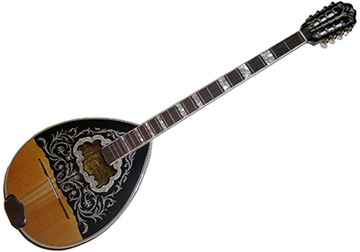Also on this page:
Greek Songs,
More Culture Topics
- Ancient Greek Religion
- Greece Movie
- Greek Architecture
- Greek Art
- Greek Bible
- Greek Columns
- Greek Costumes
- Greek Culture
- Greek Jewellery
- Greek Key
- Greek Masks
- Greek Music
- Greek New Testament
- Greek Orthodox
- Greek Philosophers
- Greek Pottery
- Greek Radio
- Greek Religion
- Greek Sculpture
- Greek Tattoos
- Greek Temples
- Greek Theater
- Greek Tv
More Topic Categories
Related Destinations
Greek Music
 Greek music has played a pivotal role in the culture of the country since it first emerged. In antiquity, it was strongly intertwined with the Ancient Greek theatre, but it was also present during religious ceremonies like marriages and funerals, as well as part of the epic poetry. During the Games of Antiquity, such as the Olympic Games and the Pythian Games, music was also of particular importance. Of course, music was also present in Greek mythology; Orpheus was a master musician, played the lyre, and was so entrancing that wild beasts could be tamed. Many more references in mythology show that music was integral in the society of Ancient Greece. Some of the musical instruments that were used in Ancient Greece include the lyre, the kithara (a more complicated instrument than the lyre), the aulos (a double – pipe instrument), the Pan pipes (or panflute) and the hydraulis (the predecessor of the modern organ, and a remarkable example of technology in Ancient Greece).
Greek music has played a pivotal role in the culture of the country since it first emerged. In antiquity, it was strongly intertwined with the Ancient Greek theatre, but it was also present during religious ceremonies like marriages and funerals, as well as part of the epic poetry. During the Games of Antiquity, such as the Olympic Games and the Pythian Games, music was also of particular importance. Of course, music was also present in Greek mythology; Orpheus was a master musician, played the lyre, and was so entrancing that wild beasts could be tamed. Many more references in mythology show that music was integral in the society of Ancient Greece. Some of the musical instruments that were used in Ancient Greece include the lyre, the kithara (a more complicated instrument than the lyre), the aulos (a double – pipe instrument), the Pan pipes (or panflute) and the hydraulis (the predecessor of the modern organ, and a remarkable example of technology in Ancient Greece).During the period of the Byzantine Empire, Greek music was strongly influenced by eastern melodies, a result of the moving of the capital from Rome to Constantinople in 330 AD. Byzantine music had a particularly religious character, based on Ancient Greek models combined with eastern liturgical chanting. After the fall of Constantinople and the capture of the empire by the Ottomans in 1453, and up to the Greek Revolution in 1821, Greek music evolved in two separate ways; folk music, inspired by Ancient Greece; and church music, inspired by Byzantine music.
Popular music started evolving during the 19th century in the Ionian Islands, which were under Venetian rule. The kantades (serenades) that were created during this period were inspired by popular Italian music of the period and were the basis for the evolution of Modern Greek songs. In the early 20th century, the Rebetiko songs emerged, having a particular appeal to the lower classes, at least initially. The songs were inspired by the life of their singers, mainly refugees, criminals and drug users, accompanied by the melody of the bouzouki. As the years passed by, rebetiko slowly declined in popularity, but was reiterated in a new form, archontorebetiko or posh rebetiko, much more appreciated by the upper social class. This was the foundation for the later appearance of entechno music (art music), inspired by Greek folk melody and often themed around Greek poems. Mikis Theodorakis and Manos Hadjidakis are two of the most important representatives of entechno music.
At the same time as entechno, the laiko music also evolved, the mainstream popular music of 1960s’ Greece, including important songwriters and singers, such as Kazantzidis, Zambetas, Hiotis and Tsitsanis. Finally, modern laiko or laiko – pop eventually emerged in the early 1980s, but is often heavily criticized for lack of originality, mediocre voices and easy – to – learn lyrics.
See Also:
 Athens Photos
Athens Photos
 Santorini Photos
Santorini Photos
 Crete Photos
Crete Photos
 Meteora Photos
Meteora Photos
 Corfu Photos
Corfu Photos






